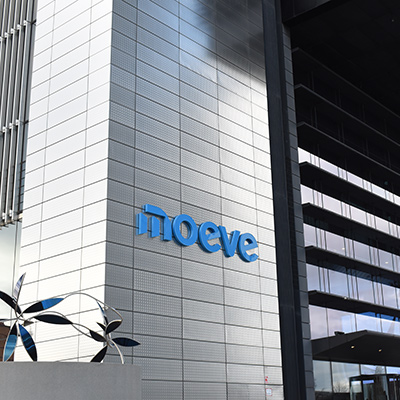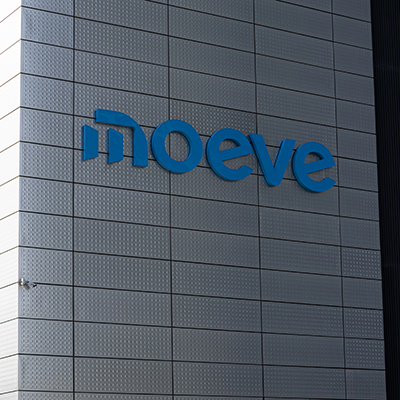- CCS EBITDA was €583m Q1’24 versus €556m in the same period of 2023, driven mainly by strong refining margins and higher refining production. These results, which represent an increase of 5% from Q1’23, are particularly positive considering that the Q1’23 figures still included production from Abu Dhabi until March 15th
- Q1’24 CCS Net Income was €226m versus €176m in Q1’23, a solid increase even without contribution from the Abu Dhabi assets which were sold in March of 2023, helped by a solid refining environment during the period
- Cepsa’s cash flow from operations was €318m for Q1’24 versus €274m for Q1’23 showing the resilience of its cash generation
- Cepsa contributed €872m in taxes in Spain during Q1’24, of which €460m were borne and €412m were collected on behalf of the Spanish tax authorities. In February 2024, Cepsa paid €122m corresponding to the first instalment of the windfall tax
- Net debt stood at €2,344m and the Company maintains a strong liquidity position of €4,565m, providing a strong liquidity buffer enough to cover maturities in the coming years
- Capex spend for Q1’24 was €217m, with sustainable capex accounting for 46% of the total1 as the Company continues to deliver on its Positive Motion strategy. As part of capex spend, Cepsa broke ground on the construction of the largest second-generation biofuels plant in Southern Europe in partnership with Bio-Oils
- Among other Positive Motion developments so far this year, Cepsa has agreed to divest its Upstream assets in Colombia, subject to regulatory approval, and successfully completed a 7-year bond issue for €750m, the largest issued by the Company to date, reinforcing its financial strength and ambitious strategy to become a European leader this decade in the production of 2G biofuels and green hydrogen, and the deployment of a network of ultra-fast electric chargers
- Ratings agencies S&P Global and Fitch Ratings reaffirmed Cepsa’s investment grade credit rating and Stable outlook for the Group as part of their annual review
“Cepsa delivered further key milestones of its transformation journey, underpinned by a strong financial performance when setting aside the continued impact of Spain’s poorly designed extraordinary tax on energy companies. We kicked off the year with the start of construction of our second-generation biofuels plant with Bio-Oils, an exciting new chapter for the company as we develop decarbonization solutions for our customers. We are pleased to be working with an increasing number of industry leaders to drive forward our Positive Motion strategy, which received a strong endorsement from the investor community this month with our largest bond auction to date of 750 million euros.
Another important step in our journey to become a leader in the energy transition has been the agreement to sell our Upstream assets in Colombia, which is subject to regulatory approval. The next major step in the execution of our strategy will be the final investment decision on our world scale green hydrogen project in the South of Spain as soon as we have the regulatory framework and incentives in place for the clean energy that is so crucial to creating a leading green economy in Spain and Europe.”
Market Environment
Crude prices remained fairly stable at 83.2$/bbl (81.3$/bbl in Q1’23), affected by a combination of counteracting factors such as production cuts by OPEC+, uncertainties in the Chinese economy, and geopolitical tensions in Ukraine and the Middle East which added risk perceptions in the market.
Refining output increased during the quarter to 5.6Mt (4.7Mt in Q1’23), with Cepsa’s Q1’24 average refining margin standing at solid levels ($10.7/bbl, vs. 10.9$/bbl in Q1’23) driven by the situation in the Red Sea, which tightened the world oil markets reducing the supply of both crude and products from Asia and Middle East. This lack of product pushed distillates cracks, supporting refining margins. In addition to these effects, the delay on new refining capacity additions and the overall geopolitical context aggravated the already tight situation in European oil markets, which also contributed to maintaining refining margins in solid ranges during the quarter.
The price of TTF natural gas fell significantly in the period to 27.4€/MWh (54.1€/MWh in Q1’23). This substantial correction in natural gas prices was a result of continued high storage levels in Europe and healthy LNG inflows, along with milder temperatures in February and March moderating demand towards the end of the quarter.
Spanish electricity pool prices continued decreasing compared to Q1’23 to an average of 44.9 €/MWh, largely led by high renewable energy generation driven by weather conditions and reduced natural gas prices across Europe.
Results Breakdown Q1 2024
Cepsa’s three main business divisions (Energy, Chemicals and Upstream) had a robust performance during the first quarter of the year. Clean CCS EBITDA for the period stood at €583m compared to €556m in the same period of last year, mainly due to solid results from the Energy segment on the back of strong refining margins and higher production. Group EBITDA for the period was also 5% above the same period last year even without the Abu Dhabi assets contribution. Cash flow from operations in the period stood at €318m including the impact of a €122m payment for the first instalment of the extraordinary tax imposed on Spanish energy companies, and compares positively with cash generation of €274m in the same period last year.
By division:
- Energy. (Energy Parks, Commercial & Clean Energies, Mobility & New Commerce and Trading). CCS EBITDA for the Energy business stood at €477m during the period (€211m in Q1’23) mainly driven by strong refining margins at $10.7/bbl and higher production, which stood at 5.6 Mt (4.7 Mt in Q1’23). Refining utilization was higher at 99% (compared to 84% in Q1’23) which contributed significantly to this solid performance. Commercial sales continued in line with the same period of last year reaching 4.0 Mt in Q1 ‘24 compared to 4.1 Mt in Q1’23.
- Chemicals. CCS EBITDA for the Chemicals division increased to €70m in Q1’24 (€64m in Q1’23) positively impacted by strong volumes recovery in Europe, stronger acetone performance, solid LAB performance due to milder energy prices and lower fixed costs. During the first quarter of the year, chemicals product sales reached 613 kton, a notable increase from 537 kton in Q1’23.
- Upstream. Cepsa’s Upstream CCS EBITDA in Q1’24 was €73m (€310m in Q1’23 which included Abu Dhabi contribution until 15th March) including improved Working Interest production due to RKF production coming back onstream early this year and the strong performance of the Ourhourd field. Fairly stable crude prices at healthy levels also boosted Upstream results.
Since the start of the first quarter of 2024, Cepsa has continued to progress with its Positive Motion strategy to become a leader in sustainable mobility, green hydrogen and second-generation biofuels in Spain and Portugal this decade, delivering a number of key milestones.
In early April, Cepsa successfully completed a new 7-year bond issue for 750 million euros, the largest to date, marking the Company’s return to the capital markets after four years. The bond issue, maturing in 2031, which was significantly oversubscribed, underscores investor confidence in Cepsa’s ability to carry out Positive Motion.
The strength of Cepsa’s business and balance sheet profile was recognised with S&P Global and Fitch Ratings reaffirming Cepsa’s investment grade credit rating and Stable outlook. S&P revised Cepsa’s outlook to Stable based on supportive market conditions, expected improved financial performance and sound financial policy, whilst Fitch reaffirmed Cepsa’s long-term issuer credit rating at BBB-, highlighting its diversified business profile and strong market position in the Iberian Peninsula.
In biofuels, Cepsa started construction of its second-generation biofuels plant in Huelva, set to become the largest of its kind in southern Europe with the capacity to flexibly produce 500,000 tons of sustainable aviation fuel and renewable diesel annually. Scheduled to start up in 2026, the plant involves a 1.2-billion-euro total investment and is part of a joint venture with Bio-Oils which includes two existing biodiesel facilities from Cepsa and Bio-Oils that are already operational. Together, these assets will form the second largest renewable fuel complex in Europe with a total production capacity of 1 million tons per annum. Cepsa holds a 55% stake in the joint venture.
In sustainable mobility, another cornerstone of the new Cepsa, the Instituto de Crédito Oficial (ICO) granted a green loan of up to 150 million euros to Cepsa. This loan will partially finance the installation of ultra-fast charging points at Cepsa’s service stations, promoting the mobility of electric vehicles in Spain and Portugal. In addition, Cepsa launched a new electric charging business for professional customers, allowing companies to recharge their fleets both at their own facilities and at Cepsa Service Stations.
In the chemicals business, Cepsa continued its commitment to decarbonize the homecare market with NextLab Low Carbon, a novel LAB product developed by Cepsa Química that reduces almost 20% of carbon emissions compared to traditional LAB, according to the results of the Life Cycle Analysis carried out by independent experts
In water management, Cepsa opened a new wastewater reuse plant at the San Roque Energy Park, enabling a 25% reduction in water use. Cepsa’s commitment to efficient water management was recognized by the international rating agency CDP, which awarded the Company a benchmark rating (A-) for water safety, a distinction achieved by just 4% of its industry peers. CDP also recognised Cepsa as a global leader in climate management within its sector.
And in waste management, Cepsa made progress on its commitment to circularity, working with new technologies, waste co-processing projects and synergies with other companies to minimize, recycle, and recover 6,390 tons of operational waste in 2023, 73% more than the year prior, preventing more than 3,000 tons of CO2 of emissions. The energy company’s Circular Economy Strategy has been recognized with AENOR certification.
1. Sustainable Capex measured under Cepsa's internal criteria for the classification of sustainable activities.


